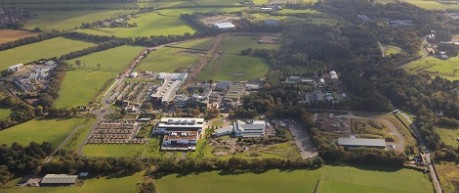Thursday 7th February 2019, 10:30am
A solar farm on the outskirts of the University of Edinburgh's Easter Bush Campus could help make the site carbon neutral over the next 20 years.

The University of Edinburgh has applied for planning permission to create the farm on agricultural land to the north east of the Easter Bush base at Roslin.
The Campus is home to the Royal (Dick) School of Veterinary Science, The Roslin Institute, Roslin Innovation Centre and the Global Academy of Agriculture and Food Security.
The ambitious project involves ground mounted solar panels and is also expected to include roof mounted installations on four buildings at Easter Bush and a car port with electric vehicle charging points in the future.
It is described in the planning application as an “important step towards the university’s commitment to be carbon neutral by 2040.”
The report on behalf of the University said:
“This will both reduce the applicant’s carbon footprint (around 80 per cent of which is from heating and powering its buildings) and be a visible demonstration of the applicant’s leadership on climate change.”
The five-hectare field earmarked for the project is currently used for grazing sheep and it is expected that they will remain on the site once the solar panels are in place. However, a perimeter fence and CCTV are included in the plans for the field amid concern that wild animals such as deer could wander in and damage the equipment or thieves could target it.
The University estimates the panels will generate 2.5 megawatt hours each year, which would meet nearly 20 per cent of the entire Campus’s energy requirements with a life span of 25 years.
"As part of its aim to be carbon neutral by 2040, the University of Edinburgh is investing in renewable technologies to power its estate."
"The solar project at Easter Bush will help the university to reduce its impact on the environment, by lowering its energy consumption, and allow researchers and the public to learn more about solar power technology."
Spokesperson for The University of EdinburghSource: Midlothian Advertiser